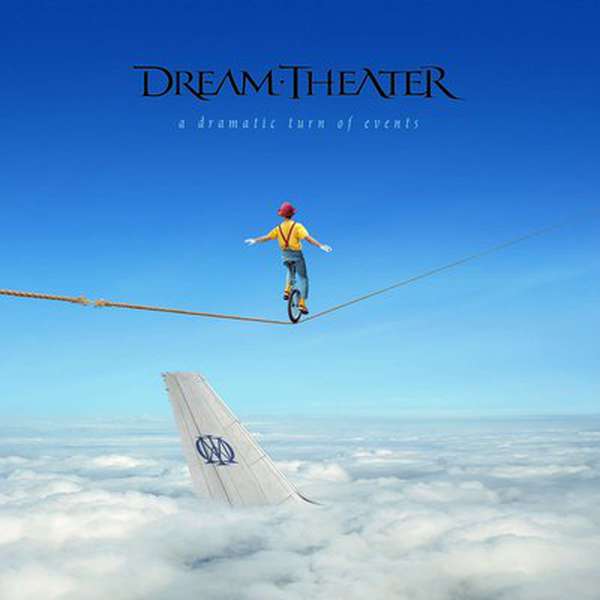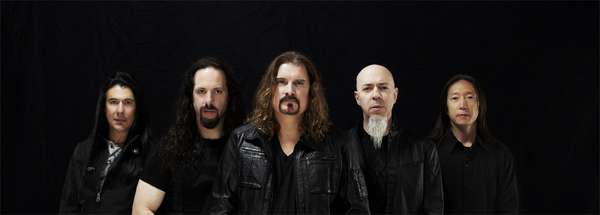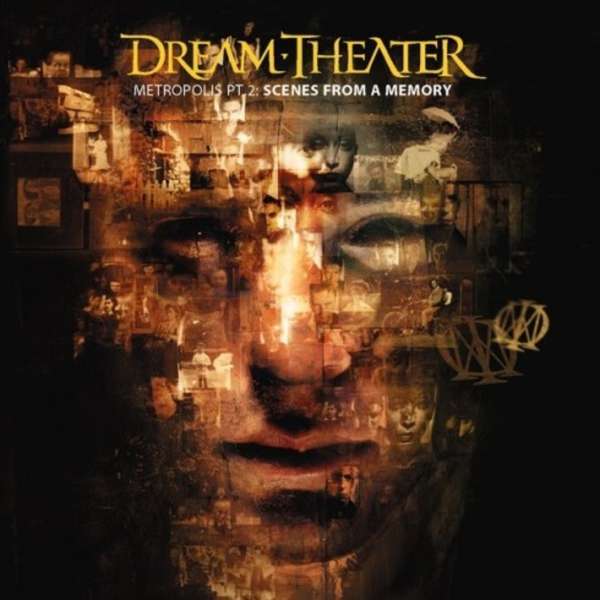A dramatic turn of events, indeed. Anyone who's been following the soap opera that has been Dream Theater's existence over the past year would believe that to be an understatement. It began with founding drummer Mike Portnoy's agreeing to work with Avenged Sevenfold after the sudden passing of their drummer, The Rev. Sometime afterwards, Portnoy (OSI, Liquid Tension Experiment, Neal Morse, Transatlantic) announced his sudden departure from the band, based in the band's refusal to go on hiatus and stop touring. Dream Theater was left without a drummer. In order to fill his place, the band launched auditions to find his replacement (which was, rather opportunistically, turned into a documentary). Portnoy, in an apparent change of heart, tried to rejoin the band, and was rejected. They chose drummer Mike Mangini (Steve Vai, James LaBrie) to fill the vacant slot. Continuing the drama, Portnoy recently sued Dream Theater for continuing to perform under that name without his consent and participation.
Given all of that, it's difficult not to frame Portnoy's new project, the absolutely atrocious hard rock project Adrenaline Mob, as a response to Dream Theater's insistence on going on without him. I've reviewed that abomination unto humanity elsewhere. But what about the flip side—how have Dream Theater gotten along without Portnoy? What are we to make of their latest release, A Dramatic Turn of Events?
Unfortunately, this album in general really isn't exploring any new ground for the band at all. In fact, most of the songs feel like carbon copies of other pieces in Dream Theater's (albeit very large) catalogue. The lead single “On the Backs of Angels,” for example, is actually a rather strong song. However, it sounds exactly like the standard single for the band; it has a catchy verse/chorus structure, a complex solo section, a return to the chorus, and a seven-to-eight minute run time. It's almost indistinguishable from “A Rite of Passage,” “As I Am,” and “Pull Me Under.” The only difference with this particular song is that LaBrie seems even less enthused with his singing than before.
LaBrie's high, near-screeching voice has always been a point of contention for fans of the band, especially after his unfortunate vocal damage around the release of Six Degrees of Inner Turbulence. There is a very noticeable difference, especially on their live releases, of LaBrie's vocals before and after that time. On this album, however, it seems almost as if he's been intentionally toning himself down even further. Almost nowhere on this disc does James really explore his upper range that defined his earlier performances like “Learning to Live” and “Metropolis.” In fact, the only time he even ventures into his high range for any length of time is on the final track.
The closer “Beneath the Surface” is one of Dream Theater's rare successes with the accessible rock format. It's simple and sweet without being too hokey, and it actually acts as quite a fine conclusion to the album. It may not be as tear-jerkingly emotional a performance as Kevin Moore's absolutely beautiful “Space-Dye Vest,” and it is probably the least technical song in their entire catalogue, but it still holds up favourably in comparison to Dream Theater's other ballad-esque pieces.
On the other side of that coin is “This is the Life,” which is one of Dream Theater's weaker attempts at the genre. It doesn't have nearly enough of the raw emotive power to carry it like “Beneath the Surface.” It unfortunately joins the ranks of “Wither” and “The Answer Lies Within” for 'Dream Theater songs we would all be happier without.' In a similar vein, “Far From Heaven,” the token piano and vocal piece, is even less interesting. It goes on entirely too long without any movement or emotion at all, making it feel like a prolonged comma in the album rather than an enjoyable segue. Unlike “Vacant,” which was short enough to be tolerable, or “Wait for Sleep,” which actually had a lot of compositional interest in its own right, this piece is entirely too drawn-out and boring to be of any interest.
Speaking of accessible rock, “Build Me Up, Break Me Down” sounds like it was taken almost directly out of Octavarium. The hard-rock inspired heavy, yet extremely accessible, sound of the piece makes it sound almost exactly like “These Walls” or “Never Enough,” and, unfortunately, every bit as unimpressive as well.
Just as unimpressive is bassist John Myung's performace on this album. Like nearly every Dream Theater album before this one, he's nigh inaudible throughout the entire mix, and delivers a rather cookie-cutter performance in the few moments where he comes to the forefront. It seems as if the band is determined only to let him solo on pieces whose titles begin with 'Met-' and end with '-ropolis.' Though he does have his first lyric credit since Scenes from a Memory, his presence on the album still feels like an afterthought compared to the rest of the band. And on this album, that's saying something.
Speaking of Myung's lyric credit, “Breaking All Illusions” is one of the few actually interesting tracks on the album, featuring an extremely solid guitar solo in a similar style to “A Change of Seasons” from guitarist John Petrucci. “Outcry” is another strong cut from the album; it feels like one of the better songs from Train of Thought, balancing heavy riffing alongside more melodic sections. It contains the most interesting and engaging instrumental parts and soloing on the entire album.
The other lengthy pieces on this album don't hold up as favourably, however. “Bridges in the Sky” is rather boring for a Dream Theater piece—the only real thing of note about the track is that the didgeridoo effect sometimes sounds like a man with indigestion (note: that wasn't hyperbole). The other epic-length song, “Lost Not Forgotten,” sounds like one of the longer takes from Falling Into Infinity. Unfortunately, unlike “Trial of Tears” or “Lines in the Sand,” it isn't contributing much to the album itself, and oftentimes gets too masturbatory. This is especially true during the choruses, where the band's constant doodling interrupts the flow of the piece significantly.
Dream Theater's usually interesting drumming parts seem almost painfully boring on this album. New drummer Mike Mangini's debut feels uncharacteristically boring for both the band and himself. That's absolutely inexcusable, given that Mangini has literally set world records for his technical proficiency with drumming. It may just be a result of the fact that he was not involved heavily with the songwriting on this album, but it's tough not to notice his drumming lacks the flair and finesse that made Portnoy's performances with the band so enjoyable.
Actually, another place where Portnoy's loss is very noticeable is with the lyrics. His lyrics regarding his personal ordeals were always a cut above the norm; pieces like the “Twelve-Step Suite,” “A Change of Seasons” and “The Best of Times” are amongst Dream Theater's finest lyrical moments. And even though Dream Theater aren't generally known for their lyrical prowess, the lyrics on this album feel much weaker than usual. “Bridges in the Sky” in particular feels extremely formulaic, almost like the lyrics were thrown in as an afterthought so that LaBrie wouldn't be left off of the song. They ruin what was otherwise one of the stronger pieces on the album.
Let me put it this way. The Dream Theater purists who simply enjoy their brand of music and don't expect anything new from them will find this album an enjoyable addition to their catalogue. Anyone expecting some growth, diversity, or exceptionally strong writing, however, will be let down. A Dramatic Turn of Events is destined to join Falling into Infinity, Systematic Chaos and Octavarium in the 'completionists-only' end of Dream Theater's catalogue.







